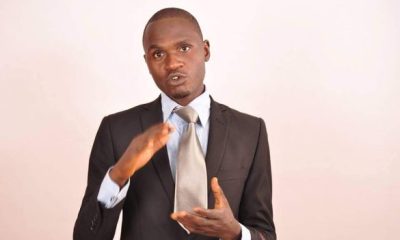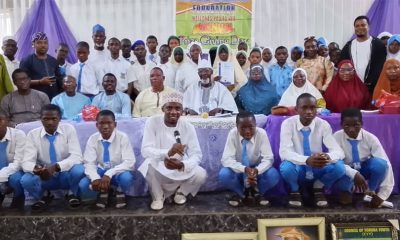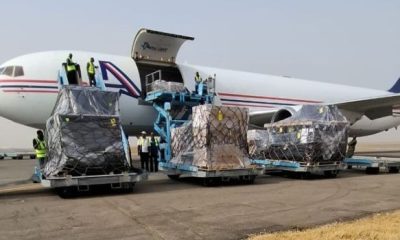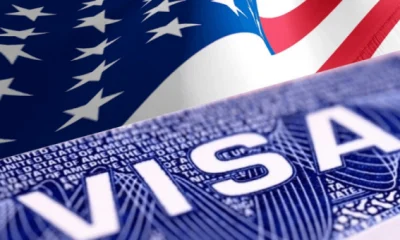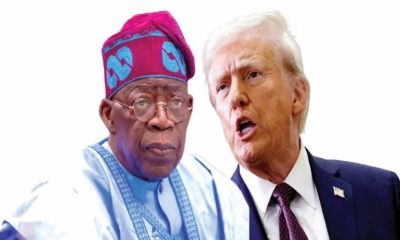Opinion
A Silver Lining: Why US Aid Freeze Should Spur Nigeria To Greater Self-reliance
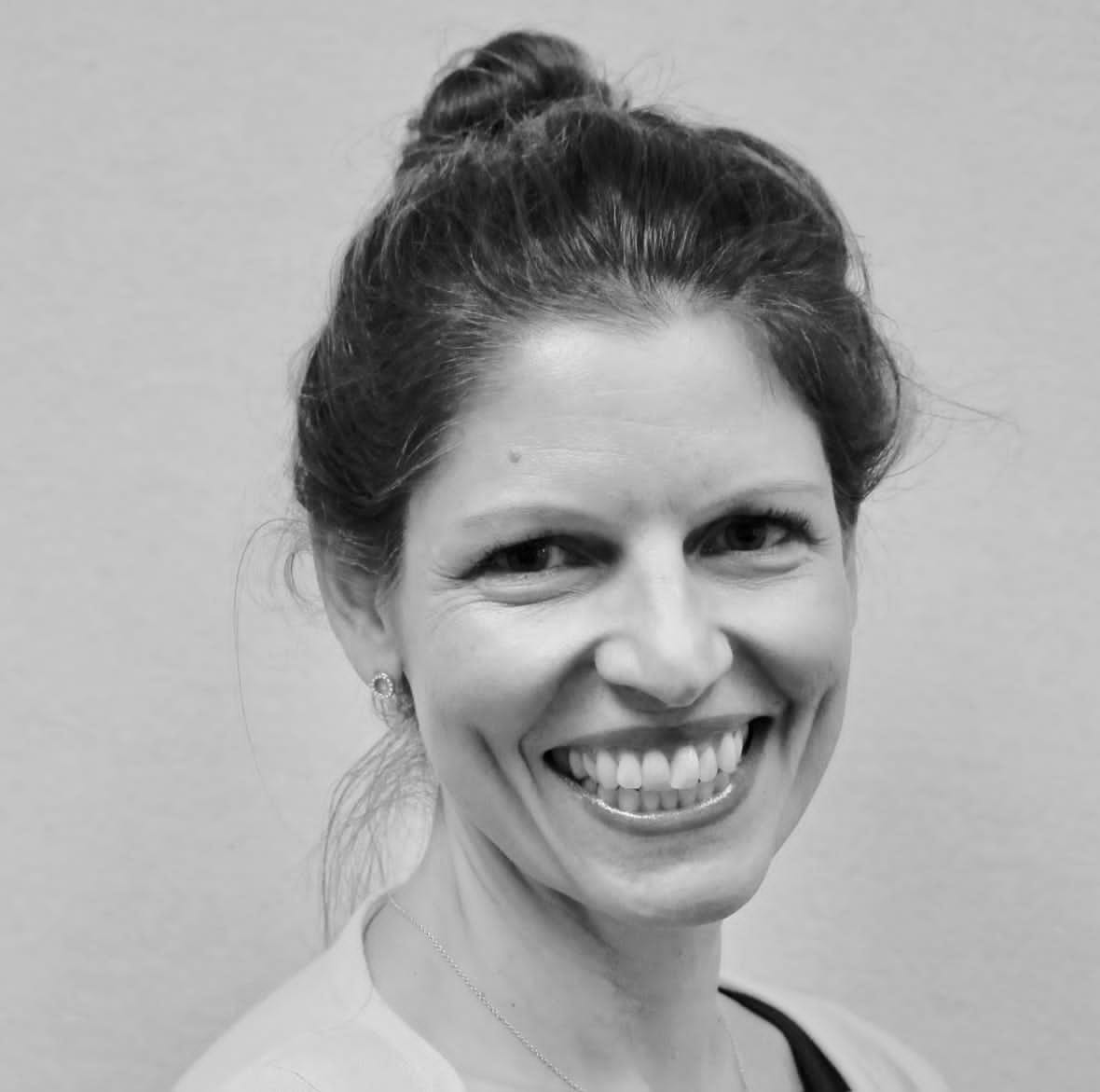
By Dr. Julia Bello-Schünemann
Foreign aid has never been the solution to Nigeria´s development challenges. However, the halt to US development assistance means more suffering for the most vulnerable. Modeling based on the International Futures model (IFs), a forecasting platform housed at the University of Denver, suggests that the decision could push approximately 700 000 additional Nigerians into extreme poverty by 2030. The health sector is disproportionately affected by the freeze as it depends excessively on US aid, primarily for the fight against HIV/AIDS. Nigeria is one of ten countries globally that are most reliant on US funding for HIV medicines. The drastic US policy shift is a wake-up call for the Tinubu administration to mobilise domestic funds to provide essential services to the population.
Hurting the most vulnerable
In 2023, Nigeria was among the top ten recipients of US development assistance with inflows of more than US$900 million. In total, it received approximately US$3.4 billion in foreign aid, representing about 11 per cent of government revenue albeit less than 1 per cent of GDP.
According to OECD data, more than 64 per cent of aid received in 2023 from bilateral donors came from the US, followed by the UK, Germany and France that each contributed around 7 per cent. When including multilateral donors, such as the International Development Association, EU institutions, UN Agencies, etc., the US share is above 26 per cent.
Before President Trump’s executive order to freeze aid, IFs forecast aid to Nigeria to increase to US$5.1 billion by 2030 and to US$6.4 billion by 2040. If US aid dries up, this scenario no longer holds. Assuming a reduction of inflows from 2025 by 25 per cent is realistic. Based on this assumption, modelling using IFs finds that 253 000 more Nigerians would fall below the US$3.65 extreme poverty income level in 2026 compared to the trajectory the country was on before. By 2030, an accumulated number of about 700 000 additional people could face extreme poverty.
Further, the harsh reductions in humanitarian assistance, especially food aid, could dramatically increase mortality among vulnerable populations. In northeast Nigeria, 4.4 million people are food insecure, and 2.2 million are internally displaced in Borno, Yobe and Adamawa states. Progress in the fight against infectious diseases might slow down significantly. Nigeria has the third-highest number of people living with HIV globally currently estimated at 2 million. In 2022, malaria killed more than 188 000 Nigerians.
New geopolitics and its vicissitude
The reduced aid scenario also factors in new geopolitics and the pressure for European governments to increase defence spending, often at the expense of development budgets. Other donors will likely not plug the US foreign aid gap, and less so in lower middle-income countries like Nigeria that should be able to at least start footing their own bill. In fact, the UK recently announced a drastic 40 per cent cut to its aid budget to spend more money on defence, and France, Germany and The Netherlands already reduced theirs. Moreover,
multilateral aid that is heavily reliant on US funding, such as from UNAIDS or The Global Fund to fight HIV, tuberculosis and malaria will likely experience cuts as well. Nigeria is the largest investment portfolio of the Global Fund, with over US$4.8 billion invested since 2002 and 1.74 million people on antiretroviral therapy for HIV in 2023.
The lion share of US aid to Nigeria goes to health, in particular HIV/AIDS response, basic and general health, maternal and child health and family planning. Nigeria is the third-largest program of the US President’s Emergency Plan for AIDS Relief (PEPFAR). Another significant share of US assistance is directed to humanitarian aid, followed by agriculture.
Recently, the US government approved a series of waivers for life-saving humanitarian assistance. However, those are surrounded by administrative uncertainty, and the exemption of US$500 million in funding for PEPFAR represents a fraction of the program´s US$6.5 billion budget in 2024. In Nigeria alone, PEPFAR has invested close to US$8 billion since its inception in 2003. Moreover, critical interventions, such as HIV prevention and community-led services for key populations, adolescent girls and young women are ineligible for waivers. In the meantime, many in-country services have been seriously disrupted or suspended.
Look inward to shield the destitute
In February, Nigerian lawmakers approved an additional US$200 million for health to offset the US funding shortfall, primarily to supply vaccines and treatment for infectious diseases. This is a good initiative, even if a drop in the ocean given the needs.
With public health being chronically underfunded, foreign assistance does matter. In the past, it has been key in improving the health of Nigerians leading to gains in life expectancy. Still, Nigeria performs worse than many of its African lower middle-income peers. Partly, this is due to poorer health system coverage, lower rates of infant immunization and inadequate water and sanitation infrastructure. Nigeria’s health sector is ill-prepared to address its persistently high infectious and its growing chronic disease burdens.
Cutting US aid off brutally is wrong, primarily because it leaves the most vulnerable even more exposed. Phasing out most US development assistance over the coming five years would have cushioned the impact and given policymakers more time to adjust and gradually plug the funding gaps. President Trump’s shock therapy means that Nigeria has no time to waste but to look inward to solve its problems.
Dr Julia Bello-Schünemann is Senior Associate, Good Governance Africa (GGA-Nigeria). She holds a PhD in International Relations from the Universidad Complutense, Madrid and has held senior research positions at the Institute for Security Studies (ISS) in Pretoria and FRIDE in Madrid. Her expertise includes policy forecasting (using the International Futures model) and conflict analysis.
-

 News4 days ago
News4 days agoOsun Assembly Aspirant Pledges People-centred Representation For Boripe/Boluwaduro constituency
-

 News5 days ago
News5 days agoOver 100 Deaths Averted As Soldiers Evacuate Suspected Bomb From Church Premises In Abia
-

 News3 days ago
News3 days agoBandits Attack Kwara Communities, Kill Villagers, Burn Houses
-

 Crime5 days ago
Crime5 days agoOsun: Court Remands Fake Herbalist Over N12.5million Fraud



